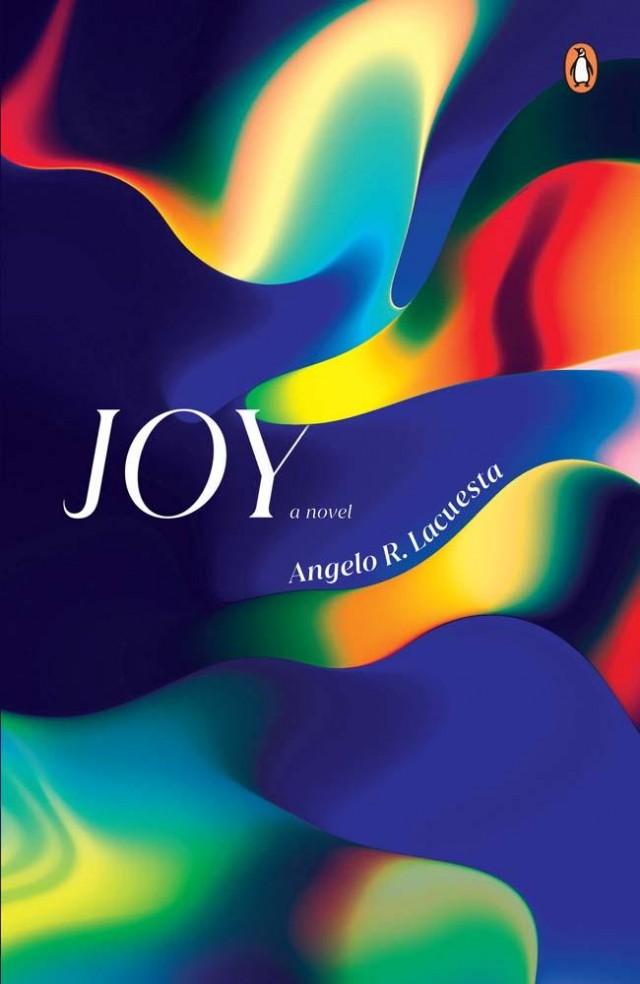In Angelo R. Lacuesta’s first novel 'Joy,' memory and intimacy radiate

Joy is a visible spectrum of light.
Such impression can be taken from Angelo R. Lacuesta’s latest book and first novel, “Joy: A Novel,” published by Penguin Random House Southeast Asia (SEA).
In between the encounters of Lucas, the protagonist who suddenly receives an email from his father Ariston Letrero after 30 years of absence, is a story that sings songs and anthems of identity, relations, loneliness, and loss in the lives of contemporary Filipinos.
Lacuesta, also known as Sarge, is not new to the craft. He has written several books, including five short story collections, two non-fiction books, and a collection of graphic stories. He won numerous awards for his writing, including three Philippine National Book Awards, the Madrigal Gonzalez Best First Book Award, the NVM Gonzalez Award, and several Carlos Palanca Memorial Awards and Philippines Graphic Awards.
Now, Lacuesta breaks barriers more barriers with his first novel. The multi-awarded fictionist sat with us for an exclusive interview with GMA News Online.
This is your first book with Penguin Random House SEA. How do contemporary Filipino fictionists like yourself contribute to the literature of the region for its Southeast Asian readers?
I’d like to hope that we are creating a larger and more recognizable space for the Filipino experience and consciousness. I also hope that the subject matter and the atmosphere of our work will spark more interest among international publishers. The Filipino writer who writes of and from home needs to be heard more.
Since “Joy: A Novel” is your first in the genre, can you tell us about your experience in writing a book-length narrative as compared to your collection of stories?
The short story remains my most beloved genre. I’ve always maintained that it is not an easier form or a “rehearsal for a novel.”
While I was writing “Joy” I kept on reminding myself that I was writing a story, too—only a longer one that allowed me the opportunity to create a deeper sense of place and time.

In the book, Lucas grinds in the creative industry. Is this the first time you created a character who is involved in this field? Do you think we need more characters like him in Pinoy fiction?
I’ve written characters like him—although probably with less sympathy. Writing Lucas, as someone aware of the creative (and moral) compromises people in the creative industry mar take, was to me a gesture of understanding. I think writers of contemporary fiction need to constantly update their characters, because the conditions of their existence change as the world changes.
How important are content creators and other advertising people in nation-building, or nation-wrecking, especially since the novel had scenes during the Martial Law era?
As powerful creative minds, they are more important than they think they are, but sadly, I think some of the work they choose to do is less important than they think it is.
The novel is mainly about the estranged relationship between Lucas and his father, “who disappeared long before the internet happened.” What lessons await the readers about (re)connection now that we are in the digital age?
I think that the digital age has removed the burden of time from the connections we make. Almost everything can be enjoyed and experienced in the present moment.
Online, and even offline, people can arbitrarily identify with old things and new things. Governments and citizens are able to revive and sustain old ideas (sometimes dangerously) and fold them into new channels and platforms of expression.
The first mention of “Joy” in the novel was a brief monologue about Joy, “the costliest perfume in the world,” which everyone wore during the Martial Law era, including Imelda Marcos. Should the readers pick up that scene and carry with them the reference to the last chapter? Why or why not?
Yes and no—like perfume, the idea of JOY for Filipinos is always fleeting and momentary. In the last chapter, where the character named Joy makes her appearance, she is similarly fleeting and momentary. But all of the above are no less meaningful.
“Joy: A Novel” seems to be a book about remembering. Readers will encounter descriptions of how skin, hair, and mouth smell like something, among others. How important is olfaction, or the sense of smell, in the collective memory of the Filipinos?
For me, the sense of smell is the easiest entry into memory. Filipinos like the smell of alimuom, or petrichor, because it recalls to them their simpler childhood. But it is interesting to note that this is one sensory element that is still lacking in one’s digital experience of the world, or more strikingly, of another person. Years from now, how will Generation Alpha remember their childhood friends?
— LA, GMA News





